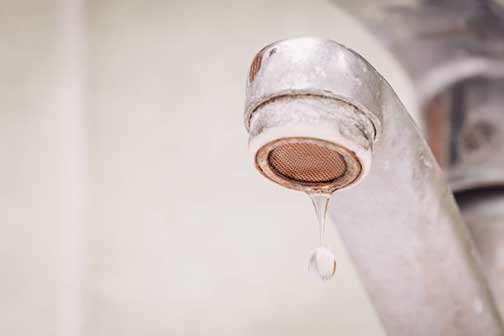
Hard water is a huge problem that affects hundreds of thousands of homes and businesses in Illinois. The state is on record as having some of the hardest water in the USA, with water hardness levels in some parts being as high as 200 PPM (which is extremely high).
If you are unfamiliar with the term “hard water,” it is used to describe water with high levels of dissolved minerals, explains RPM Reliance team. This means that your region’s groundwater contains a lot of calcium and magnesium. How did these minerals find their way into your water?
Water becomes hard when it flows through mineral-rich rock formations (such as limestone) or riverbeds with lots of calcium/magnesium carbonates, bicarbonates, and sulfates before it reaches nearby rivers, springs, wells, or the faucets in your home and also create hard water stains.
How hard water affects your plumbing
Hard water affects everything in your home. It leaves blotches on dishes & glass, coats shower curtains and tiles with gunk, impairs the function of appliances, and makes it hard to wash your hair and skin. But some of its worst effects are on the plumbing in your home.
Here are some of the effects of hard water on your plumbing:
Low water quality
Although safe to drink, hard water makes simple tasks like washing, cooking, and cleaning hard. The minerals in hard water react with soaps or detergents in a way that impairs their ability to remove dirt. To get the desired results, homeowners must use more cleaning products every time. The difficulty of living in a home with hard water drains both money and energy.
Decreased water flow
Some dissolved minerals in hard water are deposited inside your pipes as the water passes through them. Over time, these deposits narrow the pipe channels, reducing the volume of water that can flow through them. The result is decreased flow from faucets, showerheads, and other fixtures.
Chronically-clogged drains
Hard water causes hard deposits inside your drainpipes. This begins as thin deposits of limescale that soon build up until they interfere with the flow of wastewater through the pipes. If this is not solved, it can make your sewer line vulnerable to clogs/blockages.
Widespread corrosion
Calcium and magnesium may react with certain metals in your pipes, plumbing fixtures, and appliances. The slow disintegration of the metal components of your plumbing causes the system to wear out at a faster rate. This problem can make your faucets, drains, valves, appliances, and fixtures more likely to leak.
Water heater damage
One of the places where the effects of hard water are most visible is in your water heater. This is because when your water heater heats hard water to the evaporation point, the dissolved minerals in it are deposited inside the tank. Water heaters in regions with hard water break down more often due to the high rate of mineral buildup in the appliance.
Reduced energy efficiency
Hard water reduces the energy efficiency of water-utilizing appliances. Because you have to run more cycles to get rid of the white residue hard water leaves on dishes, your dishwasher ends up using more energy than normal. This applies to the washing machine also with the effect that appliances use up more energy and water than they should.
Voided warranties
Hard water deposits may void the warranty on your home appliances. Manufacturers know that unless the water hardness issue in your home is solved, the appliance is sure to beak down. In a home with hard water, it is not possible to use the appliance under normal circumstances because the circumstances in that home are not normal.
Accelerated plumbing wear and tear
Plumbing maintenance costs are higher in homes with hard water. Water pipes & drainage lines are more likely to clog or leak. The rate of appliance breakdown is higher. The risk of water damage is greater because leaks are more likely to happen. The final effect is that your entire plumbing will expire much faster, and you must replace the plumbing pipes earlier than you planned to.
How to fix hard water in your Illinois home
A water softener is the most effective long-term solution for hard water. Although there are ways to deal with each of the individual problems highlighted above, a water softener is the most cost-efficient way to tackle the problem of hard water at the source.
Water softeners remove the dissolved minerals in hard water through a process known as ion exchange. Resin beads within the water softener trap these minerals by replacing them with sodium or potassium, making the water soft. This solves all the hard water problems in your home.
There are different types of water softeners. The right one for your home depends on how hard your water is and your household’s unique needs. Choosing a water softener for your home is not something you want to do in a hurry because you will live with that choice for a long time.
This is why you want to have a trustworthy local plumber walk you through the process.

